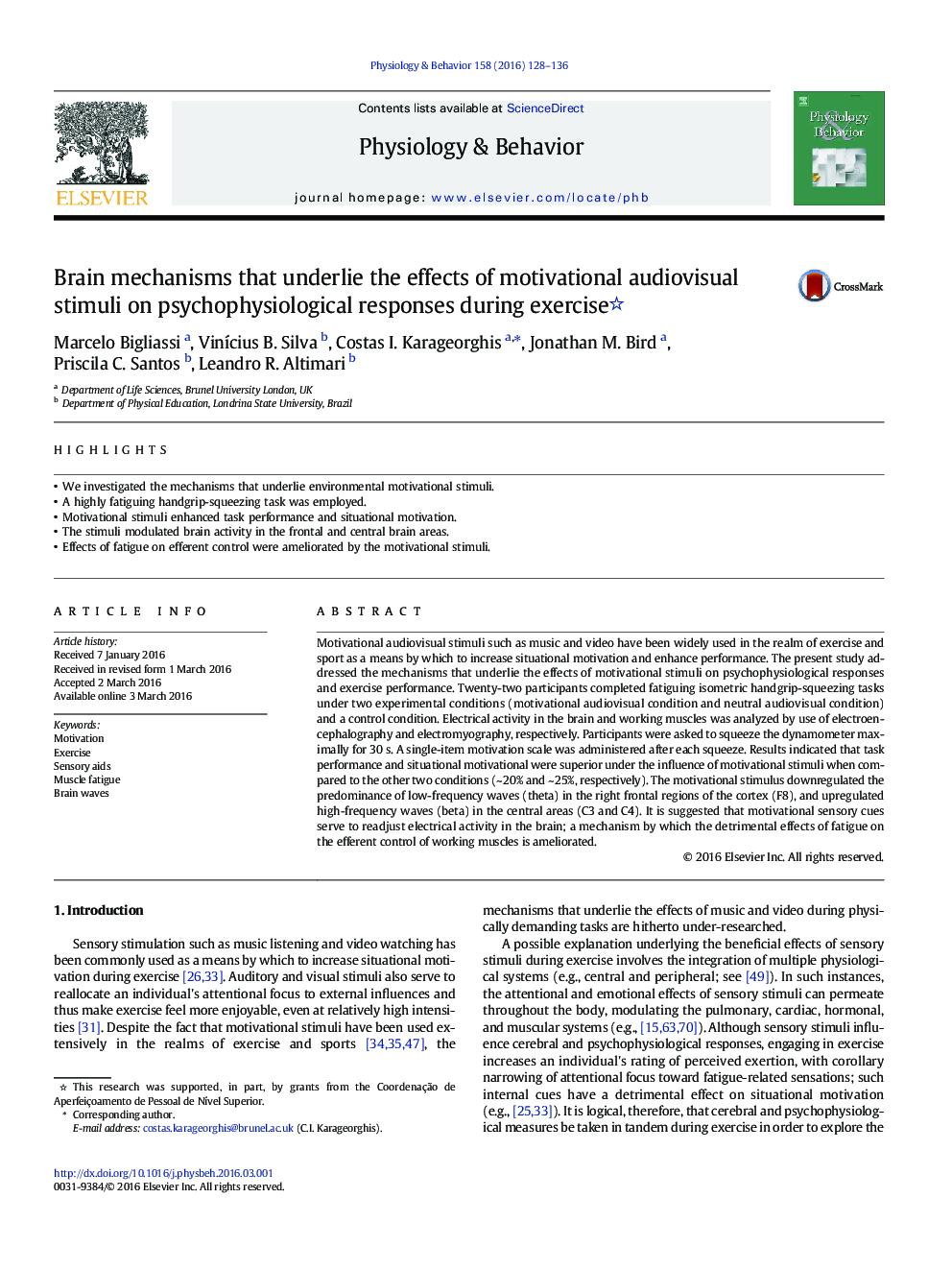| کد مقاله | کد نشریه | سال انتشار | مقاله انگلیسی | نسخه تمام متن |
|---|---|---|---|---|
| 2844059 | 1571160 | 2016 | 9 صفحه PDF | دانلود رایگان |
• We investigated the mechanisms that underlie environmental motivational stimuli.
• A highly fatiguing handgrip-squeezing task was employed.
• Motivational stimuli enhanced task performance and situational motivation.
• The stimuli modulated brain activity in the frontal and central brain areas.
• Effects of fatigue on efferent control were ameliorated by the motivational stimuli.
Motivational audiovisual stimuli such as music and video have been widely used in the realm of exercise and sport as a means by which to increase situational motivation and enhance performance. The present study addressed the mechanisms that underlie the effects of motivational stimuli on psychophysiological responses and exercise performance. Twenty-two participants completed fatiguing isometric handgrip-squeezing tasks under two experimental conditions (motivational audiovisual condition and neutral audiovisual condition) and a control condition. Electrical activity in the brain and working muscles was analyzed by use of electroencephalography and electromyography, respectively. Participants were asked to squeeze the dynamometer maximally for 30 s. A single-item motivation scale was administered after each squeeze. Results indicated that task performance and situational motivational were superior under the influence of motivational stimuli when compared to the other two conditions (~ 20% and ~ 25%, respectively). The motivational stimulus downregulated the predominance of low-frequency waves (theta) in the right frontal regions of the cortex (F8), and upregulated high-frequency waves (beta) in the central areas (C3 and C4). It is suggested that motivational sensory cues serve to readjust electrical activity in the brain; a mechanism by which the detrimental effects of fatigue on the efferent control of working muscles is ameliorated.
Journal: Physiology & Behavior - Volume 158, 1 May 2016, Pages 128–136
